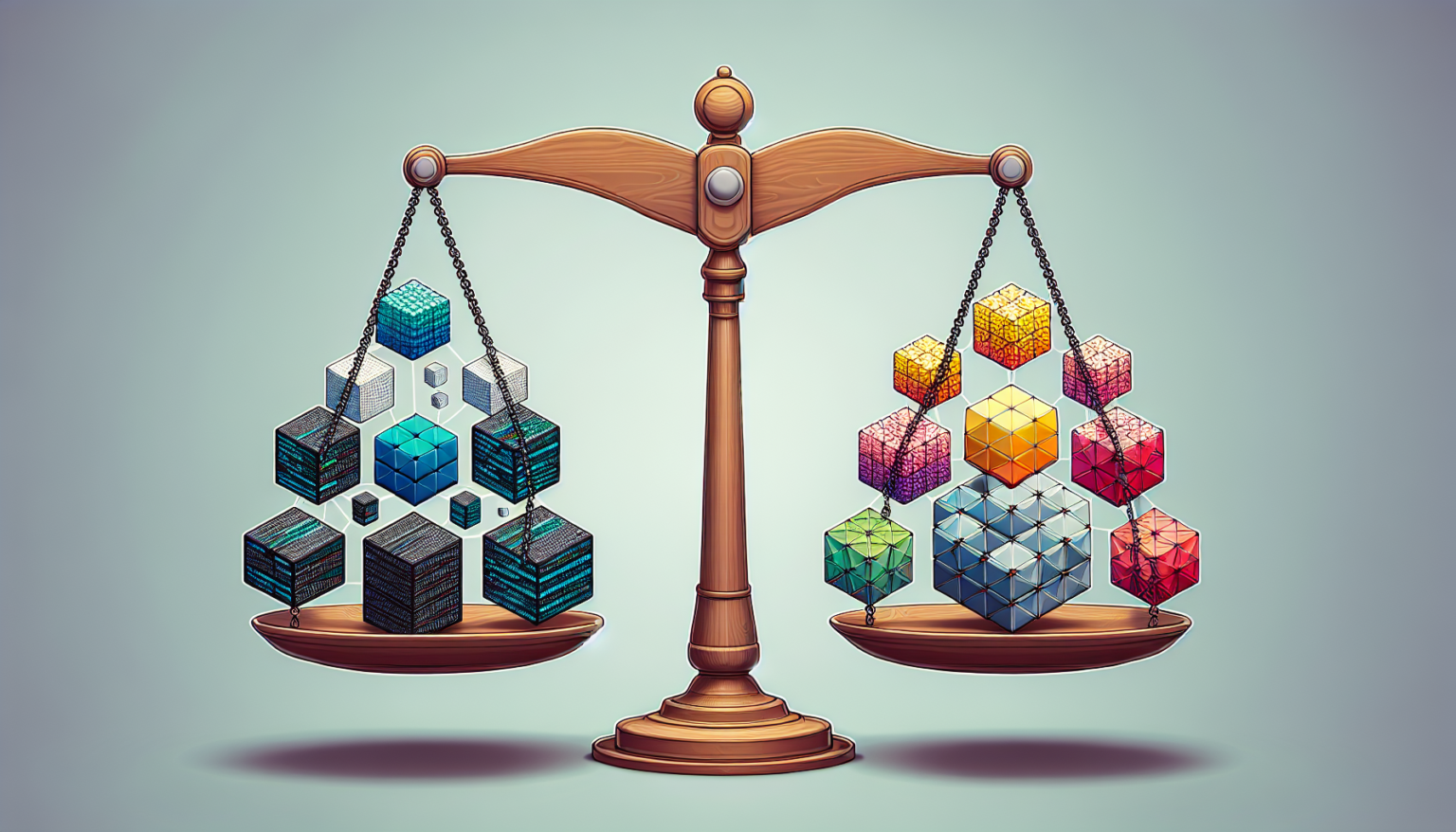Understanding Blockchain Technology
What is Blockchain?
Blockchain is a decentralized ledger technology that records transactions across multiple computers. This means that no single entity has control over the entire chain, making it difficult to alter or manipulate the data without consensus from network participants. Blockchain’s transparency and security features are its hallmarks, allowing for trustless interactions between parties.
Types of Blockchains
At its core, blockchain technology can be divided into two primary categories: public blockchains and private blockchains. Each type serves different purposes and comes with its own set of advantages and disadvantages.
Public Blockchains in Governance
Definition
Public blockchains are open to anyone who wants to participate. They are permissionless, meaning that anyone can join the network, validate transactions, and contribute to the consensus process. Bitcoin and Ethereum are prime examples of public blockchains.
Pros of Public Blockchains
Transparency
One of the most significant benefits of public blockchains is their transparency. Every transaction is visible to all participants, which fosters trust and accountability. In a governance context, this means citizens can track how funds are spent and how policies are implemented.
Decentralization
Public blockchains operate on a decentralized network, reducing the risk of a single point of failure. This structure supports democratic governance by enabling more equitable participation and preventing the centralization of power.
Security
The consensus mechanisms used in public blockchains, such as proof-of-work or proof-of-stake, provide a high level of security. Altering any data on the blockchain would require the majority of participants to agree, making it extremely difficult for malicious actors to tamper with the data.
Cons of Public Blockchains
Scalability Issues
Public blockchains can face scalability issues as the number of users and transactions increases. This can lead to slower transaction times and higher fees, which may not be suitable for governance applications requiring real-time decision-making.
Lack of Privacy
While transparency is a plus, it can also be a disadvantage. In governance, sensitive information may need to remain confidential. Public blockchains expose all transaction data, making it challenging to protect personal information or other proprietary data.
Regulatory Challenges
Public blockchains, given their global and decentralized nature, can run into regulatory hurdles. Governments may struggle to enforce laws or regulations on a system that operates independently of traditional financial institutions.
Private Blockchains in Governance
Definition
Private blockchains, in contrast to public ones, are restricted to a specific group of users. Access is granted based on permission, which allows for greater control over who can participate in validating transactions and maintaining the network. Hyperledger and R3 Corda are well-known examples of private blockchains.
Pros of Private Blockchains
Enhanced Privacy
Private blockchains allow organizations to control who can access and participate in the network. This feature is particularly beneficial for governance applications where much-sensitive information needs to be kept confidential.
Improved Scalability
Because they are limited to a select group of participants, private blockchains can handle a higher volume of transactions more efficiently than public ones. This adaptability is essential for governance systems that require quicker responses and scalability.
Customization
Private blockchains can be tailored to meet the specific needs and requirements of particular organizations or governance structures. This flexibility means that designing a blockchain solution around the unique operational needs of a government entity is entirely possible.
Cons of Private Blockchains
Centralization Risks
Even though private blockchains offer control and efficiency, they can introduce centralization risks. If a small number of entities control the entire network, it can lead to power imbalances and ethical concerns regarding accountability and governance.
Trust Issues
In a private blockchain, participants must trust the entity managing the network. This model contrasts considerably with public blockchains, where trust is distributed. If citizens feel they must rely on a central authority, it can undermine the very purpose of using blockchain for governance.
Limited Participation
Restricting access to a private blockchain may result in fewer participants than a public one, which can limit diverse input and perspectives. Effective governance often benefits from inclusive participation; thus, a private model may not facilitate this aspect.
Use Cases in Governance
Public Blockchain Use Cases
Voting Systems
Public blockchains can facilitate secure, transparent voting systems. Each vote can be recorded on the blockchain, providing an immutable record that is visible to all participants. This transparency can help mitigate election fraud and enhance voter confidence.
Public Fund Management
Using public blockchains for tracking government budgets and expenditures can increase accountability. Citizens can see exactly how taxes are spent, potentially leading to better resource allocation and reduced waste.
Private Blockchain Use Cases
Government Records Management
Private blockchains are perfect for managing sensitive governmental records such as land registries or personal data. This setup ensures that only authorized personnel can access or modify information while providing an audit trail for accountability.
Regulatory Compliance
Private blockchains enhance compliance with regulatory requirements by allowing entities to share verified data securely. This capability can facilitate collaboration across different government departments while ensuring that sensitive information remains protected.
The Future of Blockchain in Governance
Hybrid Models
One potential trend in governance may see the emergence of hybrid blockchains that combine the best features of both public and private systems. Such models could allow for secure, confidential operations while still benefiting from the transparent and decentralized nature of public blockchains.
Increased Adoption
As governments recognize the benefits of blockchain technology, we can expect a greater exploration of both public and private blockchain solutions. The ongoing development and adaptation of these technologies could lead to more efficient, fair, and transparent governance practices in the future.
Conclusion
While the advantages and disadvantages of public and private blockchains in governance are nuanced, it is evident that each offers distinct benefits and challenges. As governments continue to explore these technological frontiers, the opportunity for innovative, effective governance strategies is vast.








